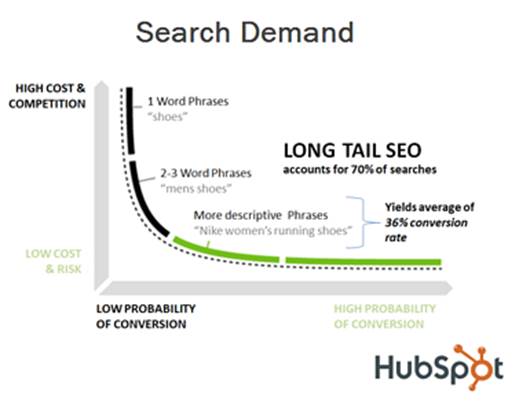
How to Harness Key Words
to Soar with Google
How to Harness Key Words
to Soar with Google
You can use what you learn from this blog to quickly optimize the key words for it and then get on with other things that help you build your business.
This is important to you because internet marketing is highly competitive and you want to do all that you can to hit the ground running.
This is the first of several posts that will be about harnessing Google rules toward your stunning internet marketing success.

There are 216 rules that Google has implemented over the years and I intend to reveal how to harness every one of them over the course of the next few months.
I will soon have a report that lists all 216 rules and what they mean at my site. It will help you soar past the competition.
You need to know how to harness these rules in order to succeed in internet marketing.
Other factors are important in internet marketing and from time to time, I will share positive secrets on other marketing topics.
I hope that you can apply what you learn from this and other posts that you read at this blog toward your internet marketing success.
Google determines the search engine ranking in two broad categories: internal and external.
Internal attributes relate to how you set up your site. They only account for 10 to 30 percent of your ranking, but can be done when you set up your site.
A good example of these would be how you use key words in your headings, content, and tags.
External factors are the primary determinants of the ranking of your site, but they take longer to establish. These factors have to do with what kind of people visit your site.
Because the internal factors are easier and quicker to set up in a website, we will discuss these first. The primary one and the easiest to implement is the use of key words in your webpage.
You can set this up and be succeeding with the proper keywords in minutes; and be on your way to a dazzling success.
Key words have always been important in ranking a page for search engines. It has always been the primary way that search engines knew what your site was about.
During the early days before the advent of Google, it was all in the Meta tag. People would stuff their Meta tags full of any and all key words that people might use to look up a subject on their topic.
They would often repeat the same key word over and over in the Meta tag. The more the better.
Whoever had the most key words in their Meta tags got the most visits. That is how it worked before Google came along.
Google asked: “What are people looking for when they type in a key word?”
When people type in ‘vacation’ are they looking for places to spend their vacation or are they looking for a hotel that someone wants to rent to them?
The hotel would win out if they had the word “vacation” more times in their meta tag.
Google started out by trying to match the content of a site to the key words that people typed in when they were doing a search. Then they improved upon their method.
The mega tags told people what the webmasters wanted them to think that the webpage was about.
The content revealed what the webpage was really about.
When people are searching for a topic, they are interested in what the webpage is really about. They are not interested in what the webmasters want them to think.
Key words are still ‘key’ to matching what people want to what is in a website. They are still the only way that the searcher can express what he is looking for.
Google no longer uses Meta keywords in its ranking algorithm at all.
The rules have been refined so that the search engines can better determine what your site is about. They can direct the searcher to the site that best represents what he is looking for better.
The big areas that concern keywords are: content, the title tags, the h1 tags and to a lesser extent the h2 and h3 tags.
Meta tags are still looked at by the search engines, but not for keywords. Google will penalize you for using keywords in the Meta tag.
The keyword in the domain name use to count for something, but in March 2017, Google has stopped giving any weight to the Keywords in the Domain. It counts for nothing, 0, for Google today.
A keyword in the domain will not make an impact on your Rankings.
However, when people search for a topic, they are more likely to click on a domain name that includes at least one of the keywords from the search query.
This has to do with human reaction to your domain name and has nothing to do with Google ranking.
Keywords are far more important in your title, H1 tags and especially, your content.
The biggest place where your keywords can affect your Google ranking is in your content. This is proper since it is the content that reveals what a site is about.
Overwhelmingly, content determines the topic of a webpage, and Google knows this.
Content should be original, informative, useful, and interesting.
When you are selecting the key words that best represent your site, you are trying to find the ones that are the most popular – the ones that will bring in the most people.
You are also looking for key words that are used less by the competition. If you choose a word or key words that are used a lot by the competition, people will find the competition’s sites before they will find yours.
This means that the most popular key words may not be the best key words to select to represent your site because people using those key words will find your competitors before they find your site.
Long Tail Keywords:
When people choose key words to look things up, they will often use single words or more often two words that describe what they are looking for. 70% of the time they will use phrases. These phrases are known as long-tailed keywords.
Long tail keywords are a combination of three or more words in a phrase. They generally attract more relevant traffic, and are typically less competitive.
Because of this, they are easier to rank well on. You rank high when you do better than the competition, and with less competition there are fewer people for you to beat out.

From: https://www.commonplaces.com/blog/5-tips-on-choosing-the-right-keywords/
Originally from Hubspot.
Choosing your key word(s)
You want to choose key words that are used a lot, but which your competition does not use that much.
That is not always that easy to do. The very popularity of the keyword probably means that the competition is already using it; and that is just what you are trying to avoid.
You want to get as high results as you can, but as little competition.
The formula is searches divided by the competition. The higher that number is, the greater the traffic to your site will be.
This is why you want to choose long tail key words – the competition may not use your particular long tailed key word that much.
When you do a search, Google will list at the top left hand corner the results. This is how many sites are using that key word to attract traffic. It is your competition.
To find out how many people are researching a keyword or phrase, use Google keyword planner.
You will need the free Google account in order to use it. Use the keyword research and strategy in the keyword planner.
You will see every keyword imaginable there.
Divide the searched per month in the planner by the results in your search page and you will have an index of how well your keyword(s) will generate traffic to your site.
Don’t worry if this number is small. It is small for others also and they are succeeding with this method.
Use this method and you will be even with the leading competition in effort; and way ahead of the many who do not use this method.
A word of advice here: this does take a little effort – very little. Success is not free; and it is not bought. You have to earn success. You have to make an effort to succeed. So the little effort that you use to find good keywords will produce huge dividends in traffic toward your site.

It will be your small efforts that will determine your success in internet marketing.
5 tips for Helping You Choose the right keywords:
Think like the customer:
Identify your target audience and put yourself in the shoes of a customer.
Ask yourself, 'If I wanted to find one of these products or services, what words would I type into Google?'
- Study the competition:
Go to the websites of your competitors to see what keywords they are targeting. Read the content and view the metatags to help identify the keywords they are using.
- Use long tailed key words:
As mentioned above, long-tailed key words are less competitive and will give you a chance to be seen by the search engines.
- Don’t stuff
keyword stuffing refers to web pages that are artificially inflated with keywords. You need to be careful which keywords to use and make sure you have high quality website content to back it up.
- Don’t overdo keyword inclusion
Make sure that your content is relevant and looks natural. If it looks awkward, people will leave your site before finishing reading.
Google notices this – it is called bouncing – and will penalize you when it sees it.
The purpose of your content is to inform people; and it will not be informing people if they have a hard time reading it.
Very Important: Most beginning marketers make the same mistakes when it comes to SEO keyword research:
- Only doing SEO keyword research once,
- Not bothering to update and expand their SEO keyword list, or
- Targeting keywords that are too popular, meaning they’re way too competitive.
First and foremost, the keywords need to be relevant and consistent with your website content and align with your business focus.
The key here is content. The internet is the information highway; and Google first and foremost looks at content.
The content of your website tells Google what your site is all about.
Your key words should agree with the message of your content. It works like this:
- You have a market that you are reaching out to.
- Your content is of interest to these people.
- Your key words agree with the content.
These are the three biggies that you want to concentrate on for SEO.
Because content is so important, I will devote the next post to that and to your title tags, and your h1 tags.
I will discuss the difference between the <title></title> tags, and the h1 tags; and how to use each.
For right now, you know how to optimize your keywords and this is important for getting ranking for your site on the search engines, and getting traffic to your site.
Take the knowledge that you have garnered from this post and apply it right now towards making your site a successful, well travelled site.
Kurt Ryker is a man with a gift for writing. He is dedicated to use his writing skills to help others succeed.
He is the creator of the Good Guy Site and other websites.
You can find other articles that Kurt Ryker has written at his site, but he will be submitting more posts at this blog so stay tuned to this blog also.
I will soon have a report that lists all 216 rules and what they mean at my site. It will help you soar past the competition.
So, keep in touch.
Related Articles
Image Alt Text: What It Is, How to Write It, and Why It Matters to SEO
Other Important Topics
Features:

